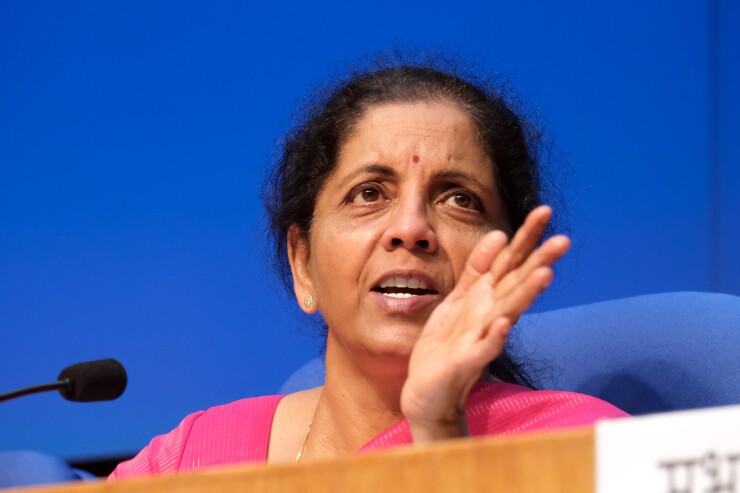The Indian government wants to promote electronic payments to boost economic growth and curb the enormous underground economy. Toward that end it’s long been more willing than Washington to direct the payments industry by intervention and moral suasion.
Finance Minister Nirmala Sitharaman’s call in her
“Certain” may be a euphemism for favored Rupay debit cards. To be sure, the coerced subsidy would incent merchants to accept favored cards, but make them money losers for banks.

Sitharaman also proposed banning cash payments for property purchases greater than 20,000 rupees (US$300), charitable and political donations above 2,000 rupees, and all payments more than 200,000 rupees. And she wants cash withdrawals greater than 1 crore ($150,000) in a year to be taxed 2%, which would disincent withdrawals but also deposits.
The Indian government has repeatedly intervened in payments. Prime Minister Modi’s ballyhooed demonetization program retiring 500 ($7.50) and 1,000 rupee notes in December 2016 was a boom heard around the payments world. It
New Delhi caps debit merchant-discount fees. And, since the beginning of 2018
India has, however, taken a more enlightened liberal stance on foreign payments competition. With some nationalist reservations, it’s open to foreign payment systems, unlike China. Competition ruthlessly regulates payment systems to deliver value and innovate. Foreign systems force domestic players to up their games and vice versa.
Many Indian regulators and much of the national payments commentariat support the idea that atomistic payments between individuals and businesses should be frictionless and free. Nothing is free. The issue is who pays and what they pay determined by the interplay of consumers, merchants, banks, networks and processors inside the market—or by the government.
Unlike in the U.S., India has a host of state banks and a monopoly interbank payments utility the National Payments Corporation of India, established in 2008 at the central bank’s behest.
The NPCI processes real-time ACH and UPI and operates the national payment network champion Rupay. Interbank payments is an area many countries treat as a utility, when they would be better served by at least a handful of competitors.
India requires payment systems to store transaction data within the country, to protect it, but also at least partly to increase the burden on foreign players systems like Mastercard, Visa and PayPal.
Mastercard and Visa enjoyed a retail payments duopoly in India until 2012 when the NPCI launched RuPay. The global giants should have sewed up the market, but it was relatively small. No matter what, it wouldn’t have moved the needle next quarter or next year, and a lack of competition bred complacency.
Market prices dynamically allocate resources to where they’re most highly valued. The smartest, most well intentioned central planner can’t match the market’s intelligence and value creation.
Indian consumers and businesses would be best served if New Delhi confined itself to discrete interventions to reduce structural barriers to payments competition, rather than imposing price controls, dispensing subsidies and promoting national favorites.





